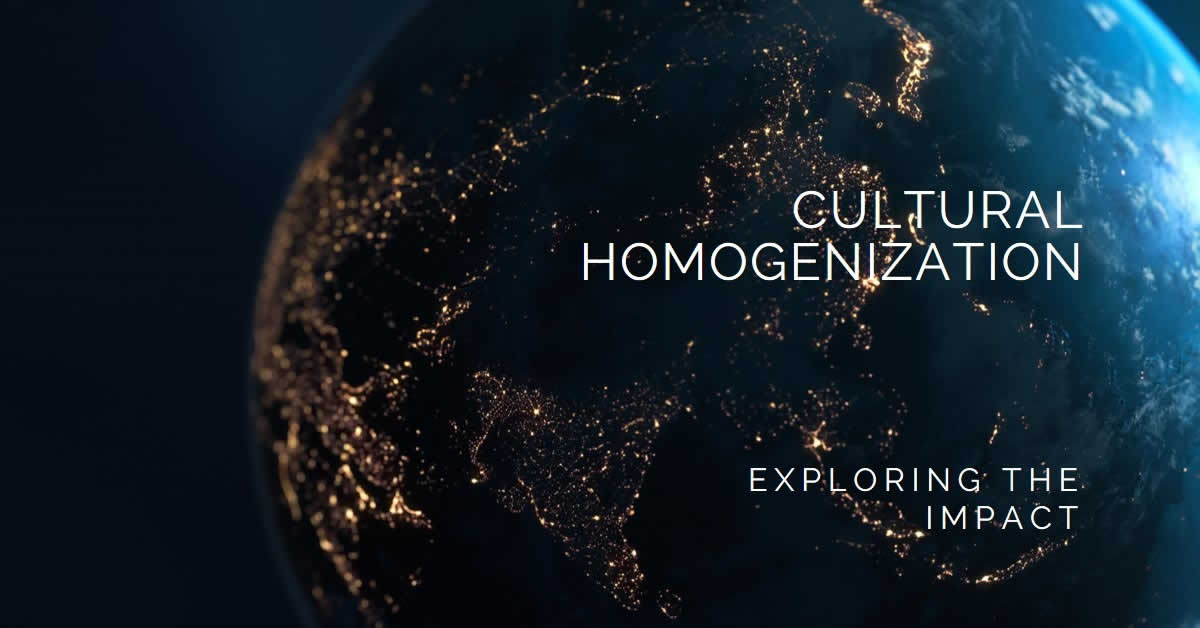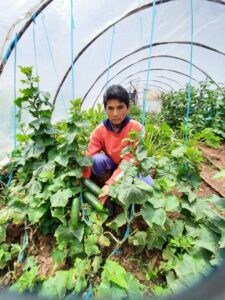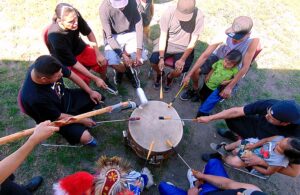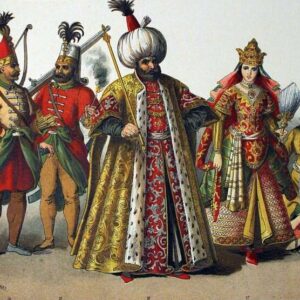In a rapidly globalizing world, numerous societies are confronted with the threat of eroding cultural identities and traditions.
Societies at risk of disappearing are frequently characterized by the decline of their unique customs, languages, and practices.
This article examines the vital role that cultural festivals play in the preservation of invaluable cultural values.
Cultural festivals provide a dynamic platform for communities to celebrate their heritage, facilitating the transmission of oral traditions and the revitalization of endangered languages, while also promoting awareness and appreciation of their cultural legacy.
This exploration will delve into the significance of these gatherings, their role in cultural preservation, as well as the challenges they encounter in today’s evolving sociocultural dynamics.
What are Disappearing Societies?
.jpg_00.jpeg)
Disappearing societies are communities whose cultural practices, traditions, and identities face significant threats due to factors such as globalization, migration, and societal changes.
These communities often possess distinctive cultural expressions, folklore, social dynamics, and symbolic representation that underscore their historical significance and societal values.
As cultural homogenization continues to rise, many of these societies encounter challenges in preserving their traditional art forms, rituals, and customs, which contributes to the erosion of their cultural identity and memory.
Understanding these communities is essential for appreciating cultural diversity, engaging in cross-cultural dialogue, and promoting cultural preservation initiatives designed to safeguard their heritage for future generations.
Examples of Disappearing Societies
Prominent examples of societies at risk of disappearance include the indigenous cultures of the Amazon rainforest, the Sami people of Northern Europe, and various tribes in the Pacific Islands. These communities face existential threats to their local traditions and cultural practices due to external pressures.
The indigenous cultures of the Amazon, renowned for their profound connection to the forest and the region’s remarkable biodiversity, confront significant challenges posed by deforestation, environmental sustainability issues, and climate change, which undermine their traditional ways of life.
Similarly, the Sami people, who have thrived in the Arctic for centuries, possess a rich heritage characterized by reindeer herding, unique handicrafts, and spiritual beliefs. However, they are currently grappling with modernity and environmental degradation that threaten their ancestral lands.
In the Pacific Islands, numerous tribes with vibrant customs and local traditions are contending with rising sea levels that encroach upon their homes, compelling them to manage loss while striving to preserve their heritage.
Each of these societies underscores the critical importance of cultural memory and identity preservation, which is vital for their survival and continuity. This emphasis fosters community engagement that is essential for maintaining their identities in the face of adversity.
The Importance of Preserving Cultural Values
The preservation of cultural values is essential for maintaining social cohesion, identity, and collective memory within communities, particularly in the context of globalization and modernization, which pose challenges to traditional ways of life and cultural continuity.
Cultural values represent the core of a community’s heritage, offering a framework for social interaction, ethical standards, and emotional connections among members. By upholding these values, societies can cultivate resilience and a sense of belonging, thereby ensuring the transmission of generational knowledge, social practices, and traditions that shape their identities.
As communities encounter rapid changes, the importance of cultural preservation initiatives, heritage management, and adaptive strategies becomes increasingly evident.
How Cultural Festivals Preserve the Values of Disappearing Societies
Cultural festivals serve a crucial role in preserving the values of fading societies by acting as vibrant celebrations of their heritage, traditions, and community identity.
These festivals provide a platform for showcasing local customs and folklore, thereby fostering cultural transmission, intercultural exchange, and facilitating intergenerational dialogue that strengthens social bonds and collective memory.
Moreover, these events not only offer opportunities for artistic expression, storytelling, and ritual observance but also enhance awareness of societal contributions and promote cultural sustainability.
The engagement of both community members and visitors creates a unique opportunity to celebrate diversity, foster inclusion, and enable marginalized voices within these societies.
1. Passing Down Oral Traditions
Passing down oral traditions is a fundamental aspect of cultural preservation in societies facing the threat of disappearance, where storytelling functions as a medium for sharing history, values, cultural narratives, and collective identity among community members.
These narratives, often conveyed through songs, tales, and proverbs, play a crucial role in shaping an understanding of one’s heritage, fostering a sense of belonging, and reinforcing community values.
For instance, Indigenous Australian Dreamtime stories are not only a source of entertainment but also impart life lessons and convey spiritual beliefs that are intrinsic to their worldviews.
Similarly, the griots of West Africa, esteemed as custodians of history, employ narrative techniques to communicate the genealogies, societal values, and accomplishments of their communities.
By actively engaging younger generations in these oral practices, societies contribute to the continuity of cultural memory and shared knowledge, making it essential for individuals to feel connected to their past and to one another. This engagement ultimately enriches communal life and identity.
2. Celebrating Traditional Practices and Customs
.jpg_01.jpeg)
Celebrating traditional practices and customs during cultural festivals presents an opportunity for communities to articulate their cultural identity and reinforce their social cohesion through shared rituals, artistic heritage, and experiences.
These vibrant gatherings serve as a platform for individuals from diverse backgrounds to come together and honor their heritage, fostering a sense of belonging. Through activities such as traditional dances, storytelling, and food fairs, community members actively engage in the preservation of their history while imparting valuable knowledge to younger generations.
Such interactions not only enhance communal bonds but also promote an appreciation for diversity, enabling attendees to gain insights into various cultural perspectives. By participating in these time-honored festivities, individuals strengthen intergenerational connections, ensuring that the essence of their traditions remains vibrant and relevant in today’s fast-paced world.
3. Educating the Younger Generation
Educating the younger generation about their cultural heritage is crucial for ensuring the preservation of traditions, fostering an appreciation of cultural diversity, and promoting identity formation within their communities.
By engaging youth in cultural festivals through various programs and initiatives, organizations can enhance the connection between young participants and their ancestral roots. These gatherings not only celebrate the richness of traditions but also promote a sense of belonging, cultural pride, and identity preservation.
Involving young individuals in the planning, performance, or volunteering aspects of these events offers them valuable opportunities to learn from their elders, share narratives, and participate in rituals that have been transmitted through generations. This involvement is a key component of participatory culture.
Through this active participation, the significance of generational knowledge becomes evident, ultimately contributing to the development of a more cohesive and culturally aware community that values intergenerational learning and knowledge sharing.
4. Revitalizing Dying Languages
Revitalizing endangered languages is a critical aspect of cultural festivals that aim to preserve not only the spoken word but also the unique cultural identity and cultural significance associated with these languages.
Such festivals create an enriching environment where communities unite to celebrate their heritage, showcasing traditional art forms, music, storytelling, and culinary practices that are intrinsically linked to their native tongues.
Through storytelling sessions, language workshops, and interactive performances, participants actively engage with their linguistic roots, fostering a sense of belonging and pride. This collective endeavor not only contributes to the preservation of the language but also reinforces connections between generations, enabling younger members to appreciate their ancestry and cultural narratives.
By highlighting the importance of maintaining linguistic diversity, these festivals serve as a reminder that language is fundamental to cultural identity, shaping perspectives and promoting mutual respect within the broader context of society. Such cultural revitalization efforts are crucial for the survival of disappearing societies.
The Impact of Cultural Festivals on Disappearing Societies
Cultural festivals exert a significant influence on vanishing societies, as they serve to reinforce community bonds, promote tourism, and enhance social awareness regarding the cultural importance and cultural legacy of these communities.
1. Strengthening Community Bonds
Cultural festivals serve as a significant medium for reinforcing community bonds, facilitating shared experiences that enhance social dynamics, cultural exchange, and strengthen collective identity.
These vibrant gatherings promote active participation from diverse groups, enabling individuals to contribute their unique perspectives and talents. This collective engagement not only emphasizes the richness of the community’s cultural tapestry but also fosters an environment of inclusivity, creativity, and belonging.
When community members unite to celebrate traditions, share stories, and appreciate artistic expressions, they create lasting memories that enhance resilience during challenging times. Such events serve as a reminder of communal strength, providing a sense of unity that can inspire collective action and support in the face of adversity.
2. Boosting Tourism, Economic Impact, and Globalization
.jpg_10.jpeg)
Cultural festivals play a pivotal role in attracting visitors, thereby significantly enhancing tourism and creating a positive economic impact within local communities. These events serve as platforms for cultural expressions and intercultural exchange that underscore the unique contributions of various societies.
Such gatherings not only display traditional arts, music, and gastronomy but also provide a supportive environment for local artisans and businesses to flourish. The increased foot traffic generated during these festivals directly benefits local vendors and artists, resulting in higher sales and enhanced visibility for their crafts.
Furthermore, the influx of tourists aids in the preservation of these cultural practices, as the revenue generated contributes to workshops and educational initiatives.
This economic uplift transcends immediate financial benefits, fostering a sense of pride among community members and ensuring that their heritage is celebrated and transmitted to future generations.
3. Increasing Awareness and Appreciation
Cultural festivals serve a vital function in enhancing awareness and appreciation of the rich cultural diversity found in at-risk societies, while educating attendees on the significance of cultural preservation.
Through vibrant exhibitions of art, music, storytelling, and traditional practices, these events provide a unique opportunity for individuals to engage with cultures that may be unfamiliar to them. As participants immerse themselves in the narratives and challenges faced by these communities, they become increasingly invested in advocating for their futures. This engagement fosters a sense of social cohesion among attendees, who often depart with not only a newfound respect but also a commitment to action aimed at preserving these traditions and cultural preservation.
By emphasizing the importance of cultural heritage, festivals encourage societies to acknowledge their interconnectedness and support initiatives focused on celebrating and sustaining diversity. This ultimately contributes to the creation of a more inclusive world.
Challenges and Solutions for Preserving Cultural Festivals
Despite their importance, the preservation of cultural festivals encounters various challenges, such as insufficient funding, limited resources, and shifting societal dynamics that pose a risk to traditional practices, community participation, and cultural continuity.
1. Lack of Funding and Resources
A significant challenge in preserving cultural festivals is the inadequate funding and resources, which impedes communities’ capacity to organize events that celebrate their cultural heritage. This financial constraint adversely impacts both the scale and accessibility of such gatherings and discourages participation from diverse segments of the community.
Since these festivals often depend on ticket sales, donations, and support from local businesses, limited financial resources can constrain creative programming, outreach efforts, and the sustainability of cultural tourism.
Several avenues exist for securing the necessary financial support:
- Grants from government entities and cultural organizations can serve as a vital resource.
- Establishing partnerships with local businesses through sponsorships can foster a sense of community ownership.
- Engaging residents through crowdfunding campaigns and collaborative initiatives can further enhance the sustainability of cultural celebrations, ensuring that they continue to flourish for future generations.
2. Resistance to Change
Resistance to change within communities can present significant challenges to the preservation of cultural festivals, as traditional practices may conflict with modern influences and evolving societal dynamics. This tension frequently arises from concerns about losing identity and heritage, prompting individuals to cling to long-standing customs and rituals.
Such resistance is rooted in a profound sense of belonging, where change is viewed as a potential threat to the community’s core values and cultural expressions. Consequently, conflicting viewpoints may impede collaboration and discourage open discussions regarding the integration of contemporary elements while honoring traditional roots, social heritage, and identity preservation.
To effectively address these challenges, it is essential to implement strategies that promote dialogue and understanding among community members. Encouraging intergenerational conversations can facilitate bridging the gap between older and younger populations, thereby providing a platform for shared experiences and perspectives.
Additionally, organizing workshops and community events centered on cultural education can enhance appreciation for both heritage and innovation. By cultivating an environment where diverse viewpoints are acknowledged and respected, communities can achieve a harmonious balance that enables them to celebrate their past while embracing the inevitable changes brought about by modernization.
3. Balancing Tradition and Modernization
.jpg_11.jpeg)
Achieving a balance between tradition and modernization is essential for the sustainability of cultural festivals, as communities endeavor to represent their heritage and community identity while adapting to contemporary societal contexts and globalization.
This delicate equilibrium often necessitates innovative approaches that involve the active participation of community members. By engaging locals in the planning and execution of these events, cultural festivals can authentically reflect community values, collective memory, and experiences, fostering a sense of ownership and pride among participants.
Such collaboration facilitates the integration of modern elements, including technology and contemporary art forms, without diminishing the significance of the time-honored practices that constitute the foundation of these celebrations. Consequently, community engagement is vital in ensuring that festivals evolve in a meaningful manner, championing cultural preservation while also embracing new ideas.
Frequently Asked Questions
1. What is the significance of cultural festivals in preserving the values of disappearing societies?
Cultural festivals play a crucial role in keeping the traditions and values of disappearing societies alive. They provide a platform for these societies to showcase their customs, beliefs, rituals, and practices to a wider audience.
2. How do cultural festivals help in preserving the unique identity of disappearing societies?
Cultural festivals serve as a way for disappearing societies to proudly display their cultural identity, social rituals, and preserve their distinct way of life. It allows them to celebrate their heritage and pass it down to future generations, ensuring cultural continuity.
3. Can cultural festivals protect disappearing societies from losing their values completely?
While cultural festivals cannot prevent disappearing societies from losing their values entirely, they can slow down the process. By bringing attention to these societies, folklore, and their traditions, cultural festivals can encourage preservation efforts and protect their values.
4. Are cultural festivals only limited to traditional practices of disappearing societies?
No, cultural festivals also incorporate modern elements and adaptations of disappearing societies’ traditions. This helps to keep these values relevant and relatable to younger generations, ensuring their continuation.
5. How do cultural festivals benefit both disappearing societies and the wider community?
Cultural festivals not only help preserve the values of disappearing societies, but they also promote cultural diversity and understanding among different communities. They can also boost local economies and promote tourism, bringing in revenue for both the society and the community.
6. Is it important to support and participate in cultural festivals of disappearing societies?
Yes, it is crucial to support and participate in cultural festivals of disappearing societies. It shows respect for their traditions, rituals, and helps to keep their values alive. It also allows for a deeper understanding and appreciation of these societies, their cultural significance, and their contributions to our world.

My name is Bruno, I have been a writer for 5 years and I work with website creation. My goal is to provide true information to readers. In fact, on this site I write about cultures and traditions, which I have been passionate about since childhood.




